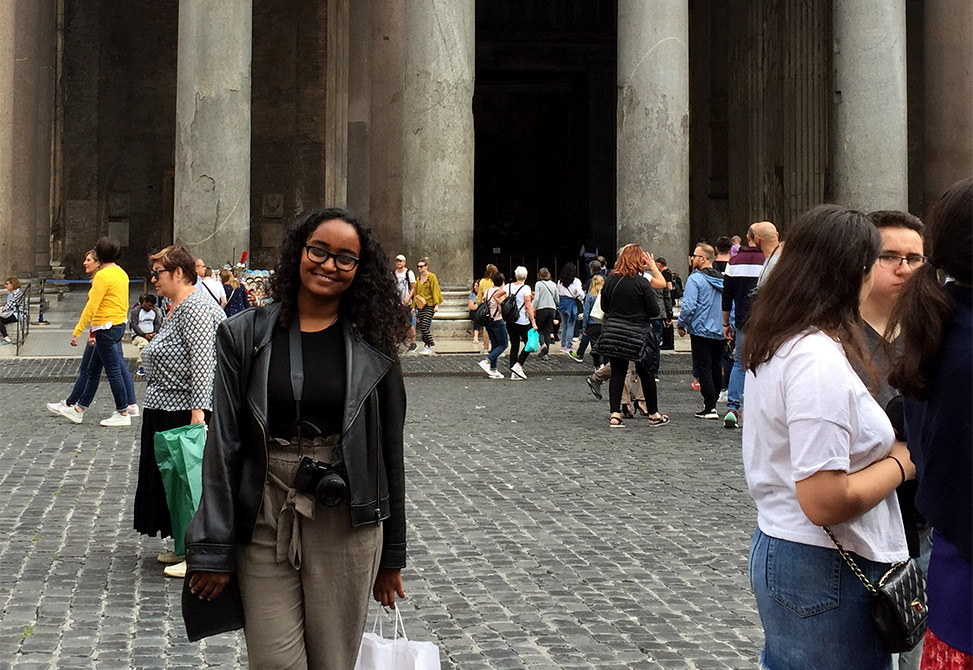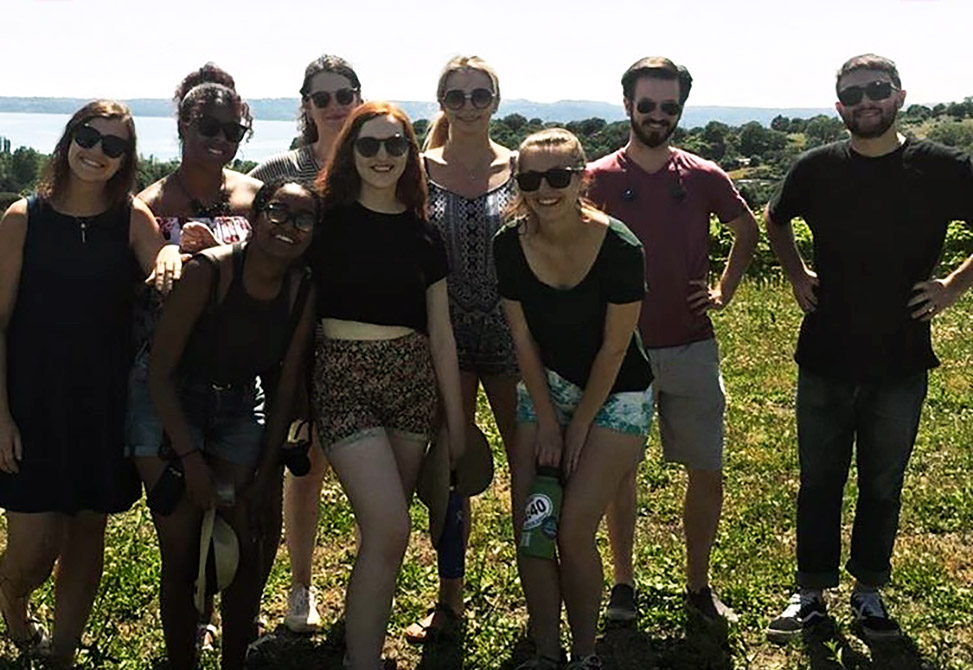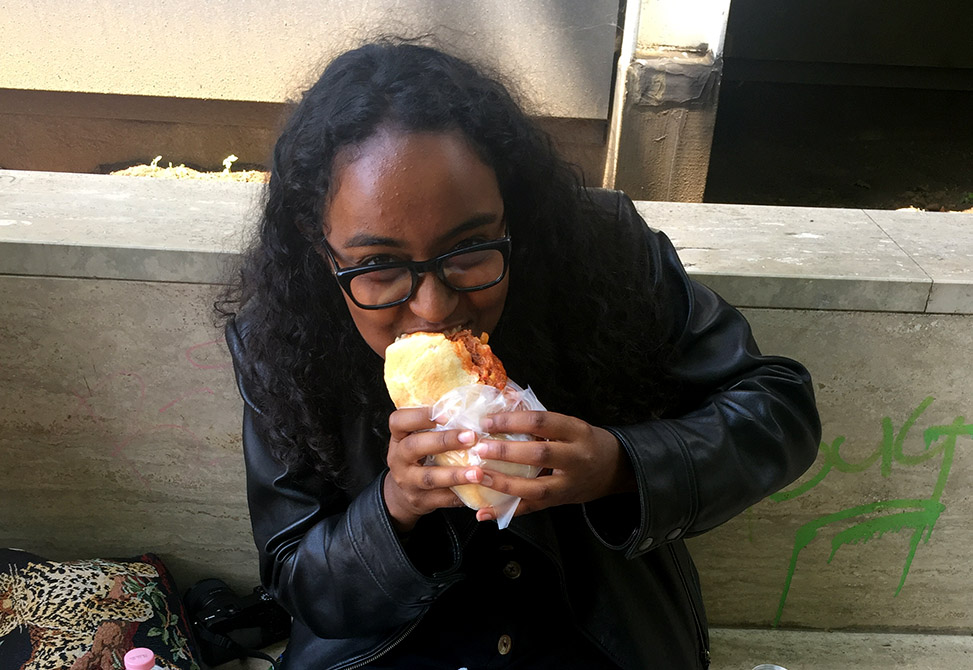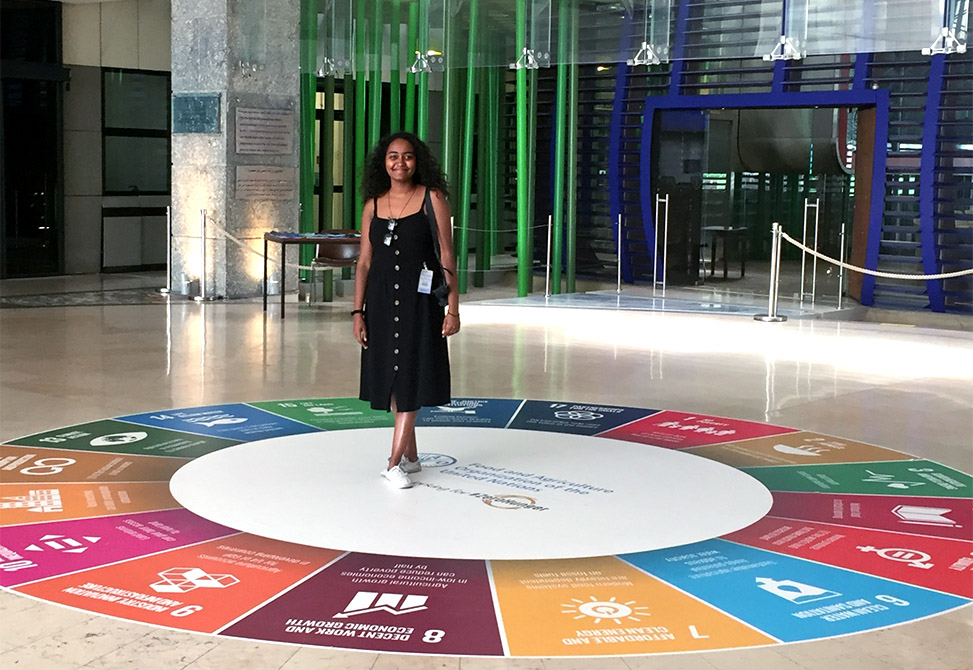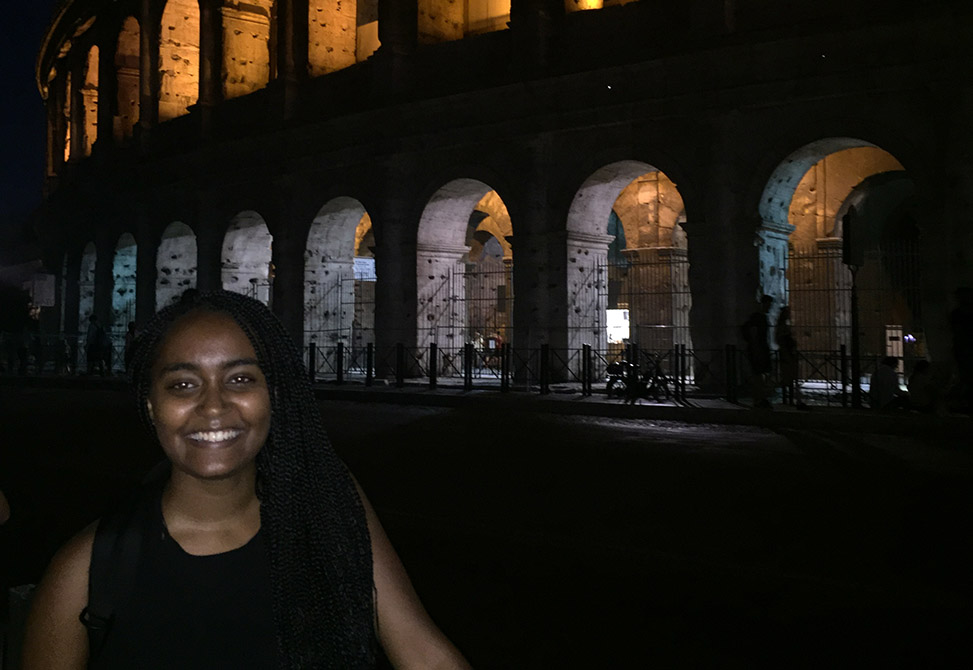Hanna Wondmagegn
About My Study Abroad Program
Major/Minor: Photojournalism (Media and Journalism) and Food Studies
Program: Gustolab International Food Systems and Sustainability
Location: Rome, Italy
Email: hannawon@live.unc.edu
Term: Summer 2019
Why did you choose to study abroad and how did you select your program?
I really wanted to spend time away from UNC and experience being a student in a different country. I selected this specific program because I am a food studies major interested in studying the cultural and social ties people have to food. Food Studies is relatively new to the UNC and there aren't many classes offered and the classes offered don't apply to my specific focus. I found this program by chance and it offered me classes on Italian food culture and nutrition that I was very interested in. The first month of the program consisted of classes and food visits to unique locations across Rome and even the coast of Italy. The second month, we were paired with an internship and worked on a personal research project. I was paired with a multicultural catering group that offered migrants a way to share their cultural food with the Italian society while also making money. The project I chose to work on was photo stories on Ethiopian and Eritrean migrants, immigrants, asylum seekers and refugees. Ultimately, this provided me with the type of hands-on education that I was very interested in and would not have been able to experience at UNC or be able to organize myself in Italy and I'm very glad I selected this program.
What did you learn about yourself?
I learned A LOT about myself throughout the summer but the one quality I learned the most about myself is how adaptable I really am. I didn't know any Italian going into the program (and still barely know anything) but I was always willing to try and do my best to communicate. I was also surprised by how adventurous I was, often going on solo adventures throughout the city and exploring around and getting lost 90% of the time. I learned that I am comfortable being alone and being different and I also learned how to blend in and how to respectfully engage and interact with people. I learned that I am strong and independent but that it was also ok to not be those things every once in a while.
What is one of your favorite memories from your program?
My favorite memory was walking around Trastevere, Rome with my camera and taking photos of locals and tourists in the area. I eventually wandered into a shop where a shopowner and his assistant were playing a game of cards. I was drawn to their game because the shopowner was Italian and the assistant was an African immigrant that I had seen a couple of times on my route to school. I was intrigued because I was studying race relations and also personally experiencing them and the sight of an African and an Italian playing cards together was not very common. I asked them if I could take photos of their game and they let me. After a while, they closed up shop but I went and got gelato with Elija, the assistant. He had immigrated from Senegal 21 years ago and was planning to go to America soon. The reason that was my favorite memory of my time in Rome was because of how we communicated: Elija spoke Italian and French and I spoke English and knew some French. Our conversation was a mix of broken French, Italian, English, hand signals and we even had a piece of paper we would use to draw pictures when all the prior languages didn't work to convey our thoughts. It was one of the best conversations I had in Rome and one of my favorite memories.
What advice do you have for future study abroad students?
I would highly recommend establishing support systems before you leave and also when you get to your site. I personally had a hard time because I was a women of color in a cohort of only 9 people (there was another woman of color). I was also an African-American woman (Ethiopian-American) living in a country where Africans are treated harshly and with disrespect due to the current politics and race relations in Italy. I didn't really have anyone to talk to and reached out to group chats from school and even social media and many people directed me to existing Facebook groups that serve as support groups like a women who travel group. Through social media I was also able to connect with other people who were abroad in Rome and it was nice knowing there was someone close by. I also had mentors from school I reached out to and I also had a staff member in my program I felt comfortable talking to. So definitely have a support system in place and don't feel ashamed or nervous to be open about your experiences to people in your program because someone else may be experiencing something similar.
Would you do it again?
Definitely. It was one of the most challenging two months for me because of the nature of my research during the second month and being a woman of color but I learned so much about myself and the experience was one I would not have gotten back at UNC.
How did your study abroad experience prepare you for your future career?
As I mentioned, the second month I was able to focus on photo stories on Ethiopian and Eritrean immigrants, refugees, migrants and asylum seekers. This project was near and dear to my heart and identity and I also want to pursue a career in photojournalism so it was very relevant. I learned a lot about working in a different culture, how to communicate through language barriers, how to connect with gatekeepers of communities and so much more. I really wanted to do this project not only for myself (with the identity aspect) but to also see how I would be able to adapt and work while focusing on a photo project for one month. It was good practice for my career for instances where I may be asked to work on a long term photo story in a different country. Honestly, the best practice I could have asked for and it was the best way for me to explore my identity and work on what I loved which is telling stories.
How were your classes abroad different than if you would have taken them at UNC?
It's one thing to learn about food culture of a distant culture in a lecture hall of 300 people and another to learn about food culture and then immediately walk out with the class to authentic Italian restaurants, farms, gardens and production sites and immediately see and taste and talk about what we were learning. We had about two visits every day for five weeks and we got to see so much of Rome than anyone traveling on their own every would in that span of time. It was so amazing to be able to apply what we learned immediately. We were also focusing on the UN SDG goals and actually got to visit FAO and other UN sites and see how companies were implementing sustainable actions and get to ask them real questions and get real answers. I love immersive education and it was so amazing to be able to experience that! It didn't even feel like we had taken any classes by the end of the program because we were so involved and it was so interactive and that's the kind of learning I love the most.
How do you identify?
Student of color, First Generation College Student, Covenant Scholars, Scholarship Recipient
Could you share any experiences where your identity played a role in your time abroad?
I was very very conscience of my identity as an African-American women in Italy from the moment I entered the airport. Race relations is very complicated in Italy and racism is very much prevalent. I was always aware of how I was treated differently from my other African brothers and sisters in Rome just because I was American and they were immigrants, refugees or asylum seekers. I never felt comfortable traveling and being able to enjoy myself when I knew how conditions were for other Africans. Additionally, being a woman and a photojournalist was another intersection of identities I had to learn how to balance. I was never really taken seriously when I said I was a photojournalist (it was only when I made business cards that I was taken more seriously) and my interest in people for their stories was misconstrued as romantic interest (I had to buy a fake engagement ring from a tourist stand so I had a way out in those common situations). Combine being a An african-american woman of color who was also a photojournalist working in remote locations and it was a very difficult and challenging time for me. I had to always be aware of how I was presenting myself and all the ways I was potentially being read by others and anticipate situations ON TOP of my standard photojournalistic standards.
Is there any advice you would give to other students who share your identity?
I mentioned this above but find communities and systems of support before you leave and immediately when you arrive. For me, it was Facebook groups and social media my first month and when I was working on my internship and photo stories, it was a specific Ethiopian and Eritrean restaurant and the Ethiopian and Eritrean neighborhoods and general African immigrant neighborhoods where it was nice to go somewhere I wasn't "different" and somewhere that was familiar to me. Having those virtual and physical spaces gave me somewhere to turn to and have people to talk to or just a space to quietly exist in and made my time so much more enjoyable.
If you faced any challenges abroad, where could you turn to get the support you needed?
Answered above but my friends, family, virtual spaces, the program I was with and physical spaces with other people I identified with.
Memories
